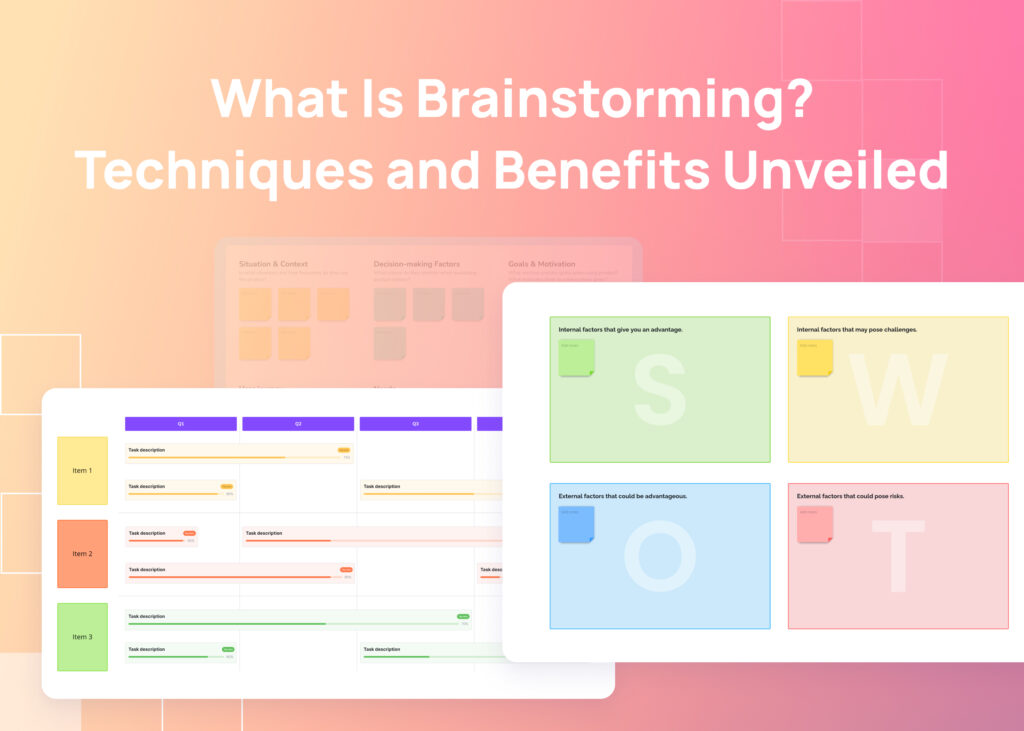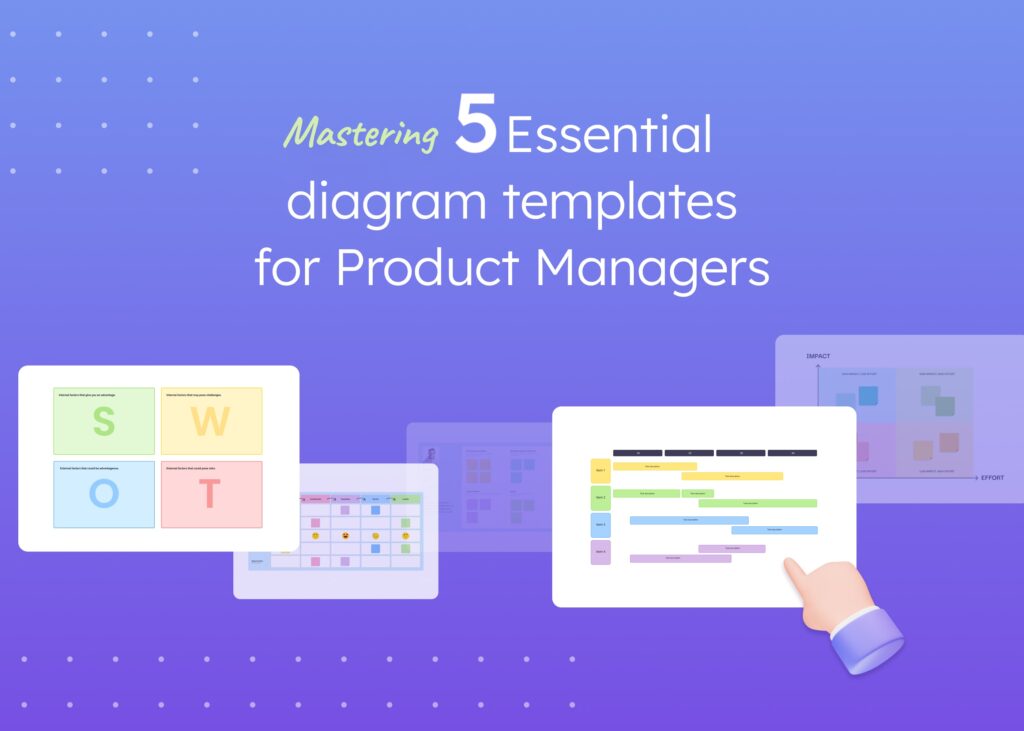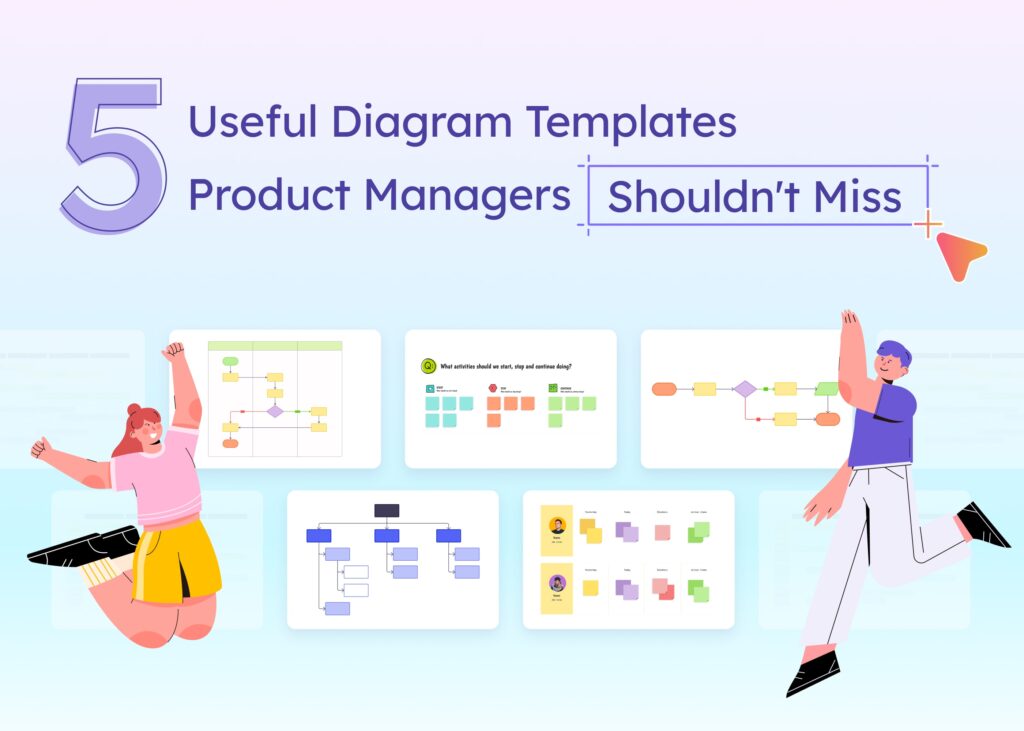The world of product management is in constant flux, and the tools you choose can either propel you forward or hold you back. These tools are the secret sauce behind successful product launches, ensuring that from ideation to execution, every step is streamlined, collaborative, and effective. To learn more about creating effective product roadmaps, check out our Ultimate Product Roadmap Guide.
So, which tools are making a mark this year? Let’s dive in.
What are the benefits of product management tools?
In the intricate world of product development, product management tools have emerged as indispensable assets, streamlining processes and enhancing collaboration. But what exactly makes these tools so invaluable? Here are some of the benefits they offer:
Rapid ideation, feedback, and iteration
Intelligent product management tools empower teams to quickly share product ideas, gather feedback from stakeholders, and iterate based on that feedback. This continuous loop of ideation, feedback, and refinement ensures that products evolve in line with user needs and market demands, leading to more successful product outcomes.
Unified vision and strategy
One of the primary advantages of product management tools is their ability to align teams around a shared vision. By providing a centralized platform for roadmapping, goal-setting, and task management, these tools ensure that every team member, from designers to developers, understands the product’s direction and objectives.
Efficient resource allocation
With features like task prioritization, backlog management, and sprint planning, product management tools enable teams to allocate resources more efficiently. They ensure that time, effort, and finances are directed towards the most impactful tasks, optimizing the return on investment.
Enhanced collaboration
Modern product management tools are built with collaboration in mind. Real-time editing, commenting, and feedback mechanisms foster seamless communication among team members, breaking down silos and promoting a more cohesive working environment.
Scalability
As products grow and teams expand, the complexities of managing them also increase. Product management tools are designed to scale, accommodating larger teams, more tasks, and broader product scopes without compromising on efficiency.
Risk mitigation
By providing a clear overview of the product’s roadmap and potential bottlenecks, these tools allow teams to identify and address risks proactively. This proactive approach ensures that potential issues are tackled before they escalate, safeguarding the product’s development trajectory.
In essence, product management tools are not just about task management or roadmapping; they’re about creating an ecosystem where products can be developed, refined, and launched with maximum efficiency and impact.
With that in mind, let’s go over some of the best product management tools you can get in 2023.
The best product management tools in 2024
1. Roadmapping & goal tracking: Airtable
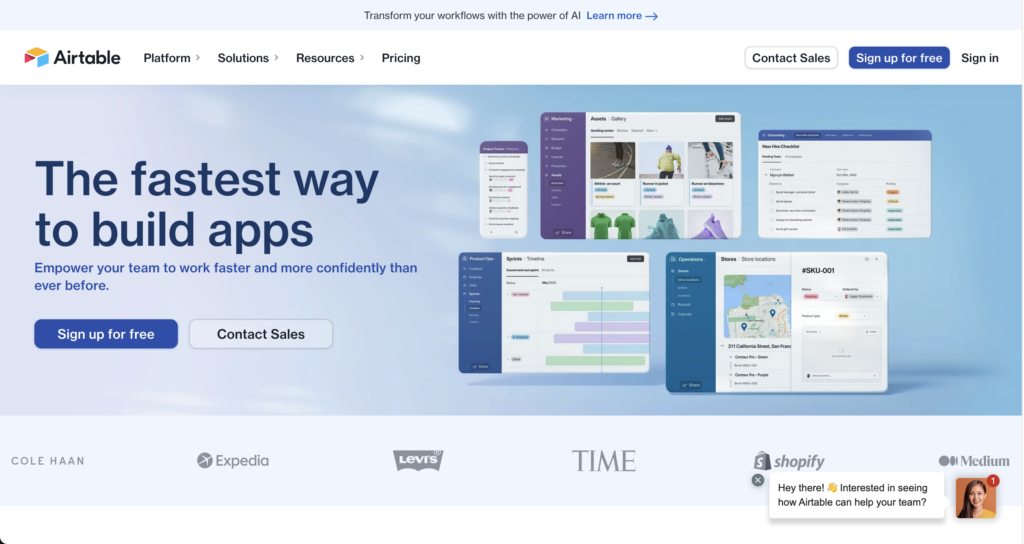
Airtable has proven to be especially effective in the realms of roadmapping, goal tracking, and sprint management. Its dynamic views, combined with an interactive relational database, have made it a favorite among product teams. The platform’s ability to reflect connections between various aspects of product development, from UX research to marketing content, ensures a holistic approach to product management. Moreover, the customization options in Airtable allow for granular data input, from user feedback to product codes, ensuring a comprehensive product development lifecycle.
2. Agile development & sprint management: Jira
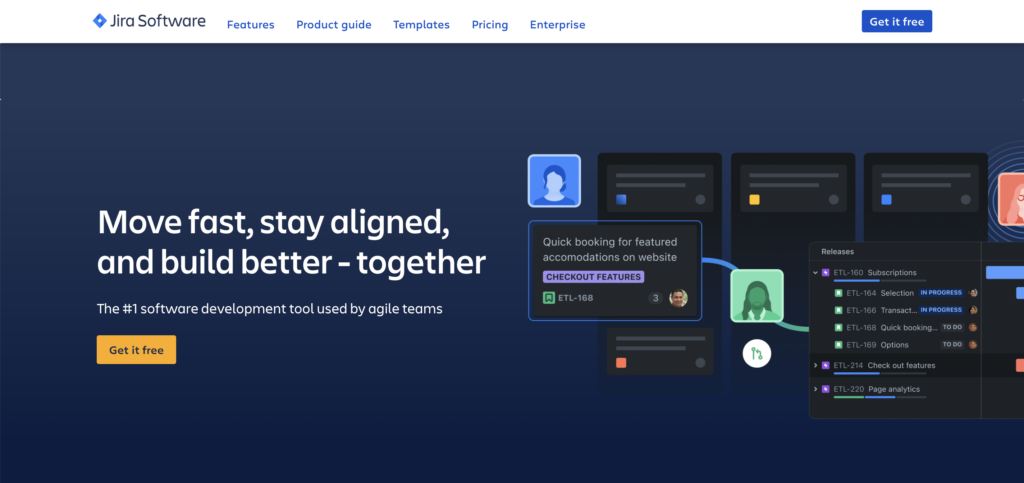
Jira, renowned in the industry for its engineering task-management capabilities, offers more than just task management. With features like bug tracking and automation, Jira has become a staple in many agile development teams. Its customizable workflows, combined with its ability to create a backlog of user stories, ensure that teams can prioritize and execute tasks efficiently. This focus on agile development and sprint management has solidified Jira’s position as a go-to tool for many product managers.
3. Roadmapping & centralized feedback: Productboard
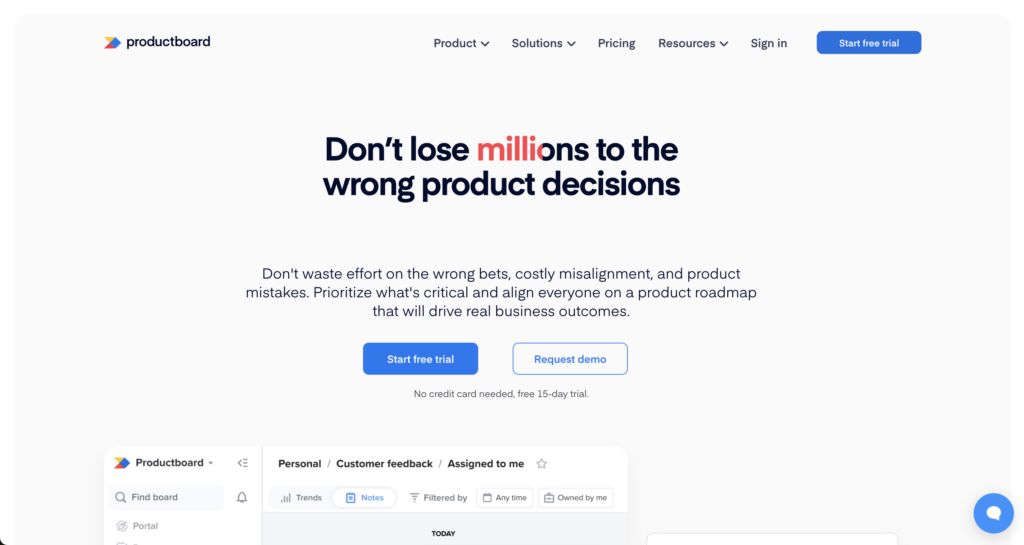
Productboard, with its emphasis on roadmapping and centralized feedback, provides product managers with a streamlined solution to optimize their development processes. The platform’s multiple views, combined with its feedback tracking system, ensure that product managers can visualize progress and incorporate user insights seamlessly. This user-centric approach, combined with features like feature scoring, makes Productboard a top choice for those looking to align product development with user needs.
4. Visual roadmapping & idea management: Aha!
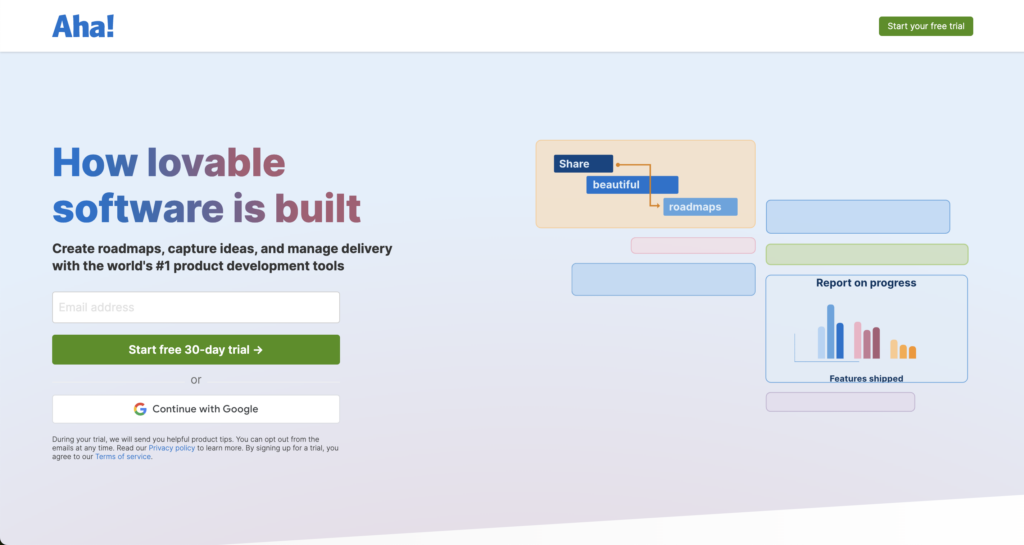
Aha! has established itself as a go-to tool for crafting visual product roadmaps. Its user-friendly interface, paired with an array of features such as idea management, custom views, and goal-setting capabilities, has made it indispensable for those involved in strategic planning. Beyond just roadmapping, Aha! offers idea portals, a unique feature that facilitates the collection, organization, and evaluation of feedback from various stakeholders. This ensures that the product roadmaps are not just based on internal strategies but are also influenced by external feedback, aligning them perfectly with market needs and stakeholder expectations.
5. Roadmapping & collaboration: ProductPlan
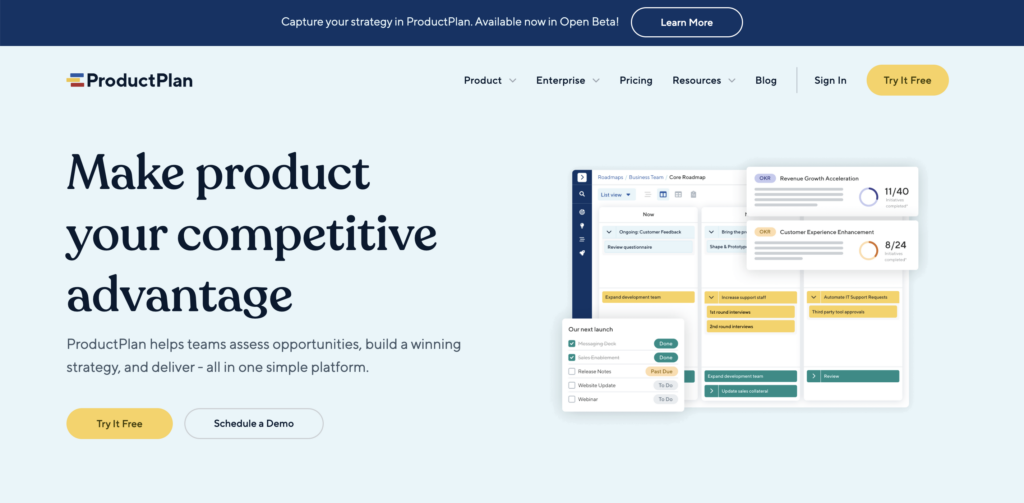
ProductPlan is more than just a tool; it’s a comprehensive solution for product teams looking to visualize, strategize, and implement their plans effectively. While its drag-and-drop interface simplifies the task of creating roadmaps, its collaboration tools take teamwork to the next level, fostering open communication and collective decision-making. ProductPlan places a strong emphasis on real-time feedback, allowing teams to adapt and pivot their strategies based on insights from team members. This dynamic approach, combined with its user-friendly features, positions ProductPlan as a top-tier choice for product teams aiming for seamless strategy execution.
6. Project management & goal tracking: Asana
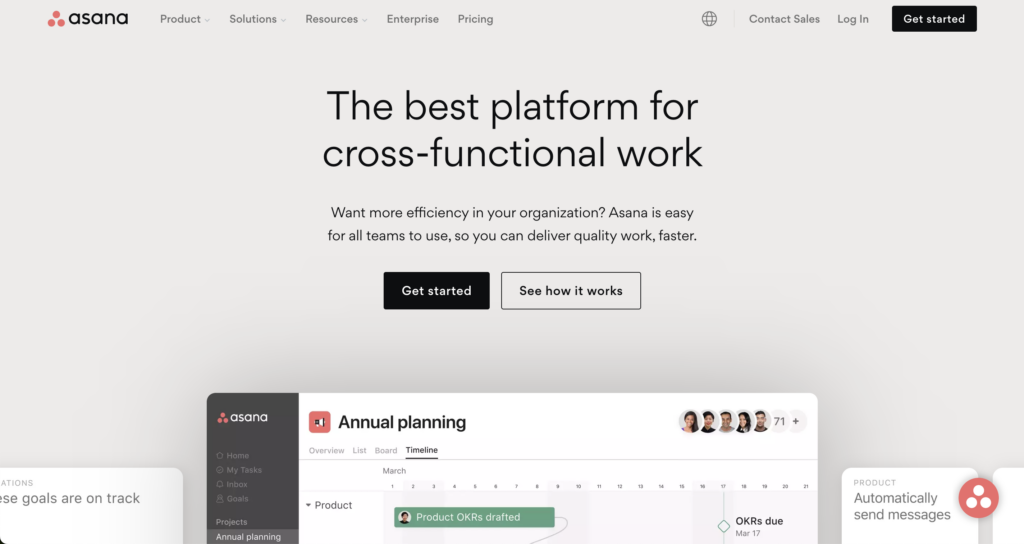
Asana, while primarily known as a project management tool, has also made its mark in the realms of roadmapping and goal tracking. Its versatility is evident in its diverse viewing options, which cater to various stages of product development, from ideation to launch. Features like task nesting provide a structured approach to complex projects, ensuring that every detail is accounted for. One of Asana’s standout capabilities is its goal-linking feature, which connects individual tasks to larger objectives. This not only provides clarity on the direction of the project but also ensures that every team member understands the bigger picture, fostering a holistic approach to product management.
7. Progress tracking & real-time collaboration: Monday.com
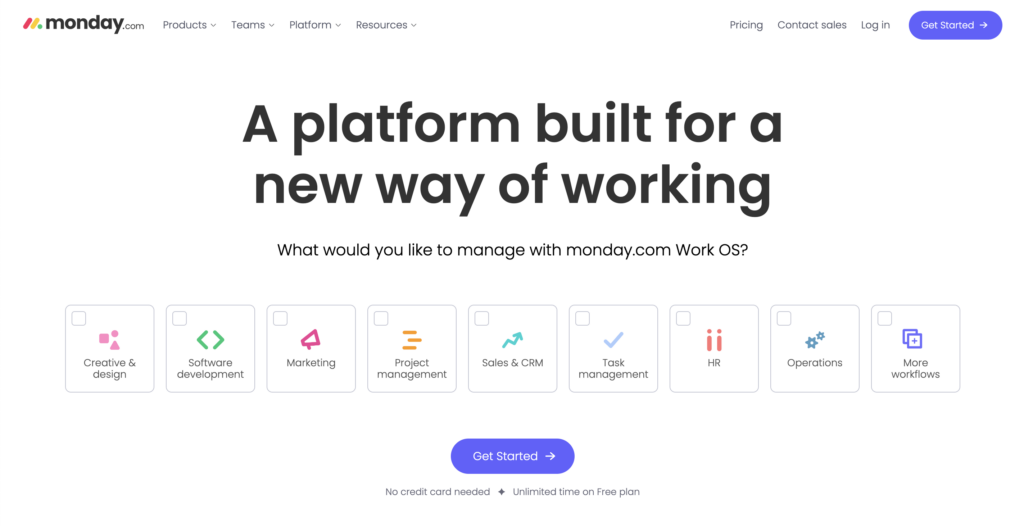
Monday.com has been recognized for its capabilities in tracking progress and fostering real-time collaboration. Its custom templates, combined with real-time tracking features, ensure that teams can visualize and execute their tasks efficiently. Its emphasis on collaboration and feedback ensures that Monday.com remains a top choice for product teams looking for a comprehensive management solution.
8. Strategic product management & AI assistance: Airfocus
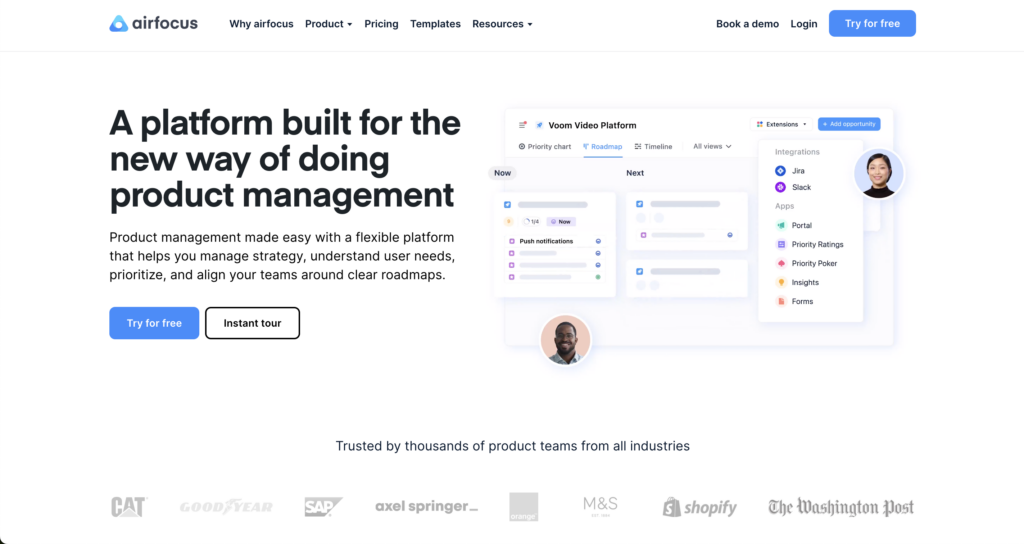
Airfocus has carved a niche for itself as a strategic product management platform, adeptly catering to contemporary demands. With its modular design, users can seamlessly start with pre-configured templates and expand functionalities as their projects evolve. A standout feature is its AI Assist, which harnesses artificial intelligence to aid product managers in crafting PRDs, problem statements, and user stories. Additionally, its robust integration capabilities, connecting effortlessly with platforms like Jira, Trello, and Asana, coupled with top-tier security measures, make Airfocus a trusted choice for businesses aiming for streamlined product management.
9. Visual task management & collaboration: Trello

Lastly, Trello, with its card-based system, offers teams a unique approach to managing tasks and collaborating on projects. Its simplicity, combined with its flexibility, ensures that both small and large teams can manage their tasks efficiently. Trello’s ability to offer a visual representation of tasks, combined with its integration capabilities, ensures that it remains a favorite among product teams.
How to choose the best product management software?
When selecting the right product management software for your team, consider the following factors:
- Alignment with your product development methodology: Choose a tool that supports your team’s preferred development approach, whether it’s agile, waterfall, or a hybrid model.
- Integration with existing tools: Ensure that the software integrates seamlessly with your current tech stack to avoid data silos and workflow disruptions.
- Scalability: Opt for a tool that can grow with your team and accommodate increasing complexity as your product evolves.
- Collaboration features: Look for software that facilitates effective collaboration, with features like real-time editing, commenting, and file sharing.
- Customization options: Choose a tool that allows you to tailor workflows, templates, and views to your team’s specific needs.
- Reporting and analytics: Ensure that the software provides robust reporting and analytics capabilities to help you track progress, identify bottlenecks, and make data-driven decisions.
- User-friendliness: Select a tool with an intuitive interface that minimizes the learning curve for your team, ensuring quick adoption and maximum productivity.
By carefully evaluating these factors, you can find the product management software that best aligns with your team’s goals, processes, and culture. Product managers can also leverage AI in the product design process to streamline the creation of these components, as discussed in our article on Ways Product Managers Can Leverage AI in Product Design.
Navigating product management tool selection
There are a number of high-quality product management tools on the market today, each offering unique features and capabilities. As the industry continues to evolve, these tools will undoubtedly play a pivotal role in shaping the future of product management.
While many management tools offer valuable features, there’s a growing need for solutions that democratize the design process. Enter Visily. Unlike traditional product management tools, Visily empowers teams with AI-driven capabilities, allowing for multi-user editing that can significantly boost productivity. Its vast library of templates and swift design-to-action functionalities make it a game-changer for non-designers.
Experience the Visily difference firsthand and sign up for free today!
Professional product management: top tool selection FAQs
1. What are the tools required for a product manager?
Essential tools for a product manager include:
- Roadmapping software (e.g., Aha!, ProductPlan)
- Project management tools (e.g., Jira, Asana)
- Collaboration platforms (e.g., Slack, Microsoft Teams)
- Analytics tools (e.g., Google Analytics, Mixpanel)
- User feedback management software (e.g., UserVoice, Productboard)
2. What are the 5 C’s of product management?
The 5 C’s of product management are:
- Customer: Understanding customer needs, preferences, and behaviors.
- Company: Aligning product strategy with company goals and resources.
- Competitors: Analyzing the competitive landscape and differentiating your product.
- Collaborators: Working effectively with cross-functional teams and stakeholders.
- Context: Considering the broader market, technological, and regulatory context.
3. What are the 3 major areas of product management?
The three major areas of product management are:
- Product Strategy: Defining the product vision, roadmap, and goals.
- Product Development: Managing the product lifecycle from ideation to launch.
- Product Marketing: Positioning the product, understanding the market, and driving adoption.
4. What skills does a project manager need?
A project manager needs a diverse set of skills, including:
- Leadership and communication
- Time management and organization
- Problem-solving and decision-making
- Technical knowledge and industry expertise
- Budgeting and resource allocation
- Risk management and mitigation
- Stakeholder management and negotiation






